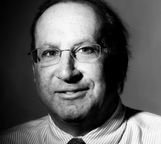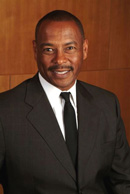Evidence: A Structured Approach, Sixth Edition
Evidence: A Structured Approach, Sixth Edition
Buy a new version of this textbook and receive access to the Connected eBook with Study Center on Casebook Connect, including academic lifetime access to the online ebook with highlight, annotation, and search capabilities. Access also includes practice questions, an outline tool, and other helpful resources. Connected eBooks provide what you need most to be successful in your law school classes.
The unique structured approach of Evidence: A Structured Approach, Sixth Edition facilitates learning and incentivizes students to prepare for class. One Federal Rule of Evidence introduces each section, followed by text explaining the background, rationale, and details of the rule. The text includes numerous diagrams as visual aids to learning and short transcripts that illustrate how the rules are applied in the courtroom. The authors emphasize the rules over cases, but include a few edited versions of the seminal cases that every lawyer should know. The heart of the “structured approach” is the Questions for Classroom Discussion, which follow the narrative explanation for each rule. These questions consist of simple hypothetical cases allowing for a step-by-step analysis of each section of the pertinent rule. Because students know what questions the professor will ask in class, they quickly learn that preparation pays off. The book’s website allows students to download the questions directly into their notes before class, freeing students to spend more time thinking and less time typing.
New to the Sixth Edition:
- New and revised Questions for Classroom Discussion, examples, and Exam Tips
- California Evidence Code §352.2
- Updated organization of Chapters 5 (Character and Other Act Evidence), 7 (Examining Witnesses), and 10 (Burdens of Proof and Presumptions)
- Modernized design
- Updated Rule 801(d)(1) (subject to cross-examination; prior inconsistent statements)
- Updated Rule 901(b) (problems posed by new technologies)
- Updated Rule 702 (testimony by expert witnesses)
- Developments regarding evidence from social media or stored in electronic format
- Recent rule amendments and proposals to limit the admissibility of evidence regarding the content of rap lyrics
- The structured approach—a series of short hypotheticals for class discussion—are provided for each rule. Each hypo in a series builds on the previous hypos until it is clear what the key parts of the rule mean and how those parts work together. Because students know in advance what questions will be the focus of class discussion, they have a strong incentive to come to class prepared. This approach is how most professors teach evidence law, even when they use a book that emphasizes cases—by presenting a series of hypos that build upon one another. The difference is that this book complements how most professors already teach the course.
- The Hearsay chapter—this difficult topic is taught through literally hundreds of examples. The narrative explanations are supported by visual depictions of key concepts. This includes diagrams that show students how to tell hearsay from non-hearsay by thinking about the logical steps that connect a statement to the fact it is offered to prove (Statement --> Inference --> Conclusion).
- Streamlined, manageable length—makes it easy for professors to cover and students to focus on the important material.
- The impact of new technology and recent rule amendments—explored through cases and problems.
Product Information
Evidence: A Structured Approach, Sixth Edition
Connected eBook with Study Center + Hardcover
Evidence: A Structured Approach, Sixth Edition
Connected eBook with Study Center (Digital Only)
Evidence: A Structured Approach, Sixth Edition
LLPOD
Evidence: A Structured Approach, Sixth Edition
eBook + Study Center + Audiobook
Evidence: A Structured Approach, Sixth Edition
eBook + Study Center + Audiobook + Hardcover


